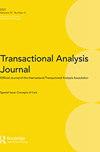OKness Revised: Analysis and Evolution of Berne’s Concept of OKness, the Basic Positions, and the Related Reenactments of Berne’s Internal World in the Transactional Analysis Community
引用次数: 0
Abstract
Abstract Ever since Eric Berne conceptualized basic positions, the concept of OKness has almost incomprehensibly changed. Considering each individual as inherently OK, the so-called moral OKness that today is one of the cornerstone principles of transactional analysis (TA), has little in common with Berne’s initial psychodynamic conceptualization. Adding to the confusion, yet another form, what could be referred to as social OKness, emerged. It has become a standard of interpersonal relating within the TA community and has since been institutionalized as one of the formal standards in the TA qualification process. This article revises Berne’s original basic positions and analyzes the related theory. Parallels with Fairbairn’s object relations theory are made. The author touches on potential causes for the theoretical vagueness of the concept of OKness. He questions Berne’s motivation and approach to some of his theory development, which appears to have been substantially influenced by Berne’s internal conflicts. The author argues that conflicts stimulated through Berne’s relationship with psychoanalysis added to his obsession with the development of TA—a theory that would derive its superiority from its differentiation from psychoanalysis and, as such, help Berne mediate his own sense of OKness. Berne’s internal conflicts have since been reenacted within the TA community. A substantial part of post-Bernean theory development reflects Berne’s tendencies toward oversimplification of what are innately complex concepts. This threatens TA’s wider recognition as epistemologically grounded theory, which can also be seen as a reenactment of Berne’s lack of recognition from the psychoanalytic community.《ok性修正:伯尔尼ok性概念的分析与演变、基本立场以及伯尔尼内在世界在交易分析界的相关再现》
自从埃里克·伯尔尼将基本立场概念化以来,ok的概念几乎发生了不可理解的变化。考虑到每个个体本质上是OK的,所谓的道德OK性,今天是交易分析(TA)的基石原则之一,与伯尔尼最初的心理动力学概念化几乎没有共同之处。更令人困惑的是,另一种形式,也就是所谓的“社会ok”,出现了。它已成为助教社区人际关系的标准,并已被制度化,成为助教资格认证过程中的正式标准之一。本文对伯尔尼原有的基本立场进行了修正,并对相关理论进行了分析。与费尔贝恩的对象关系理论进行了比较。作者探讨了“ok”概念在理论上模糊的潜在原因。他质疑伯尔尼对他的一些理论发展的动机和方法,这似乎受到了伯尔尼内部冲突的重大影响。作者认为,伯尔尼与精神分析的关系所激发的冲突,增加了他对精神分析理论发展的痴迷——这一理论将从其与精神分析的区别中获得优势,因此,帮助伯尔尼调解他自己的“好”感。此后,伯尔尼的内部冲突在TA社区中重演。后伯尔尼理论发展的很大一部分反映了伯尔尼对天生复杂概念的过度简化的倾向。这威胁到TA作为认识论基础理论的广泛认可,这也可以被视为伯尔尼缺乏精神分析界认可的重演。
本文章由计算机程序翻译,如有差异,请以英文原文为准。
求助全文
约1分钟内获得全文
求助全文
来源期刊

Transactional Analysis Journal
Decision Sciences-Decision Sciences (miscellaneous)
自引率
0.00%
发文量
27
 求助内容:
求助内容: 应助结果提醒方式:
应助结果提醒方式:


